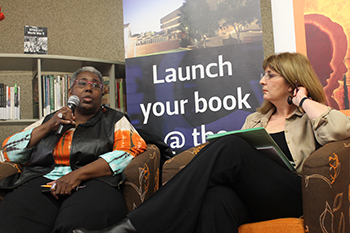Latest News Archive
Please select Category, Year, and then Month to display items
01 March 2023
|
Story Alicia Pienaar
 Prof Mathys Labuschagne is the Head of the Clinical Simulation and Skills Unit within the School of Biomedical Sciences in the Faculty of Health Sciences
Prof Mathys Labuschagne is the Head of the Clinical Simulation and Skills Unit within the School of Biomedical Sciences in the Faculty of Health Sciences
The Dean of the Faculty of Health Sciences, Prof Gert van Zyl, invites you to the inaugural lecture of Prof Mathys Labuschagne, Head of the Clinical Simulation and Skills Unit within the School of Biomedical Sciences in the Faculty of Health Sciences.
Subject: Clinical Simulation: Quo Vadis?
Venue: Auditorium, Equitas Building, Bloemfontein Campus
Date: 8 March 2023
Time: 17:30
RSVP on or before Friday 3 March 2023
Light refreshments will be served after the inaugural lecture.
About Prof M Labuschagne
Prof Mathys Labuschagne is the Head of the Clinical Simulation and Skills Unit within the School of Biomedical Sciences in the Faculty of Health Sciences at the University of the Free State. He completed his MB ChB degree and qualified as an ophthalmologist in 2006.
He developed an interest in health professions education and obtained a PhD in Health Professions Education in June 2012. The title of his thesis was: Clinical Simulation to enhance undergraduate medical education and training at the University of the Free State.
Prof Labuschagne was appointed Head of the Clinical Simulation and Skills Unit at the University of the Free State. The facility is utilised for undergraduate and postgraduate clinical simulation training, as well as interprofessional training and research. He has a special interest in simulation as training tool, precision skills training, and mastery of learning and simulation as tool to prepare students for interprofessional education and collaborative practice.
Prof Labuschagne is part of a multi-institutional consortium that developed the MySkills Medic app. It is a clinical procedural skills application aimed at graduating medical students, interns, and community-service doctors. He was appointed as a member of the Ophthalmology Foundation Education Simulation Subcommittee (affiliate of the International Council of Ophthalmology) tasked with developing a white paper to guide simulation training for ophthalmologists. He is involved in postgraduate supervision for master’s and PhD students in HPE.
Africa’s lost voice during the Second World War echoes throughout book
2016-08-24

Prof Judith Byfield and Prof Heidi Hudson at the
book launch of Africa and Second World War at the
UFS Sasol Library.
Photo: Rulanzen Martin
If you pick up any historical record on the Second World War, you would see that, to a large extent, Africa has been missing from the history pages until now.
Africa and the Second World War (WW II) is a book edited by Prof Carolyn Brown from Rutgers University and Prof Judith Byfield from Cornell University in the United States. The book is the outcome of various papers presented during a workshop at Rutgers University and at a conference on WWII hosted at Cornell University.
The co-editors of the book were invited by Prof Jonathan Jansen, Vice-Chancellor and Rector of the University of the Free State (UFS), to launch the book at the UFS. The Centre for Africa Studies at the university, in collaboration with the UFS Sasol Library, presented the launch on Tuesday 16 August 2016.
Bestowing honour upon Africa’s role during WW II
Many people do not know that WW II started in Ethiopia with the Italian Invasion. This is generally omitted from discussions or complete histories of WW II. The present book explores the experiences of male and female combatants, peasant producers, women traders, missionaries, and sex workers during the war. “Many people are not aware that Africa produced most of the mineral and agricultural during the war,” said Prof Brown.
Book to reach a greater audience for discussion
The co-editors hope that the book reaches people who teach WW II history, as many talk about only the nationalist movements. “The opening of the book also talks about the importance of South Africa during WW II,” said Prof Byfield. The authors hope that people will read the book to start thinking comparatively about the war.